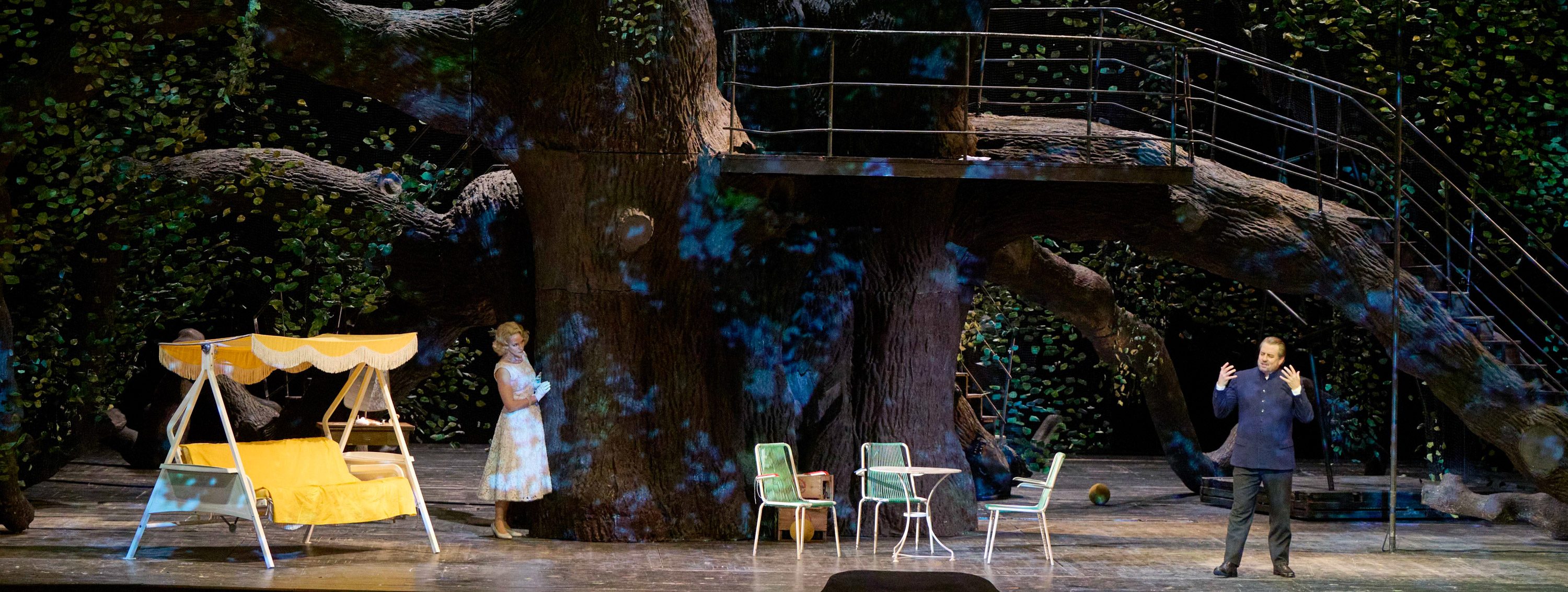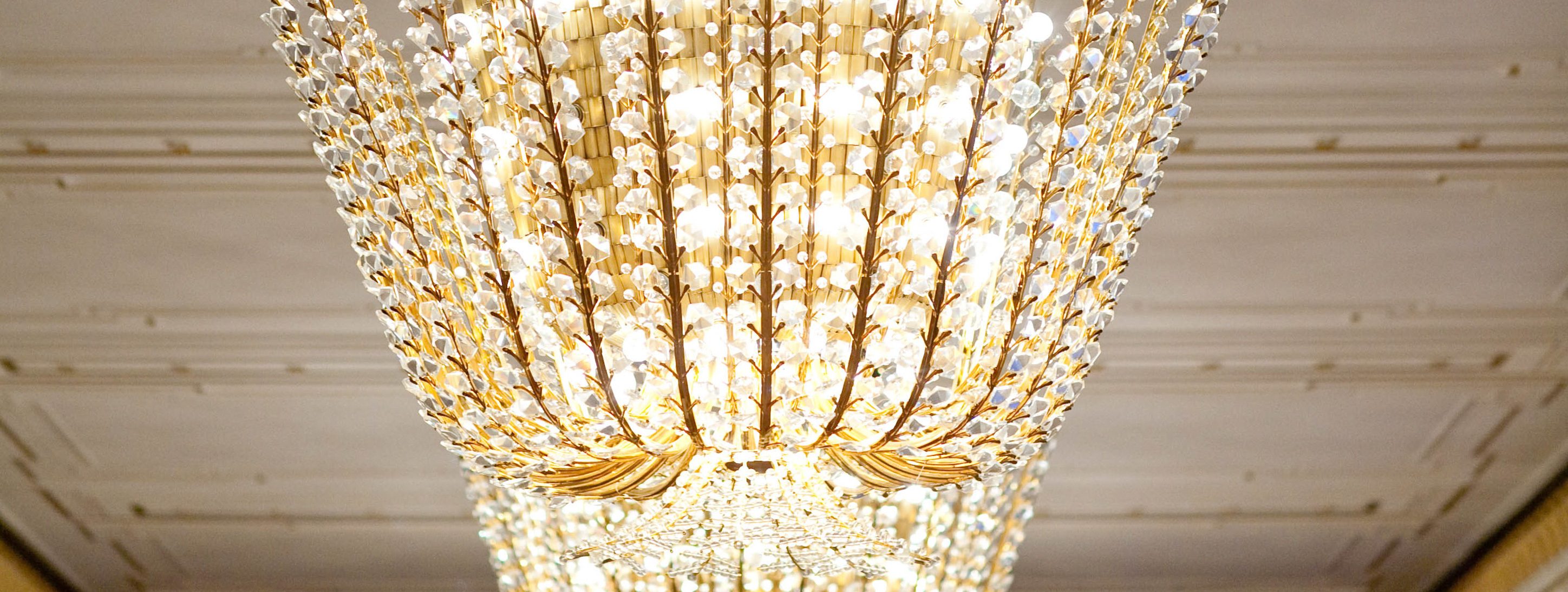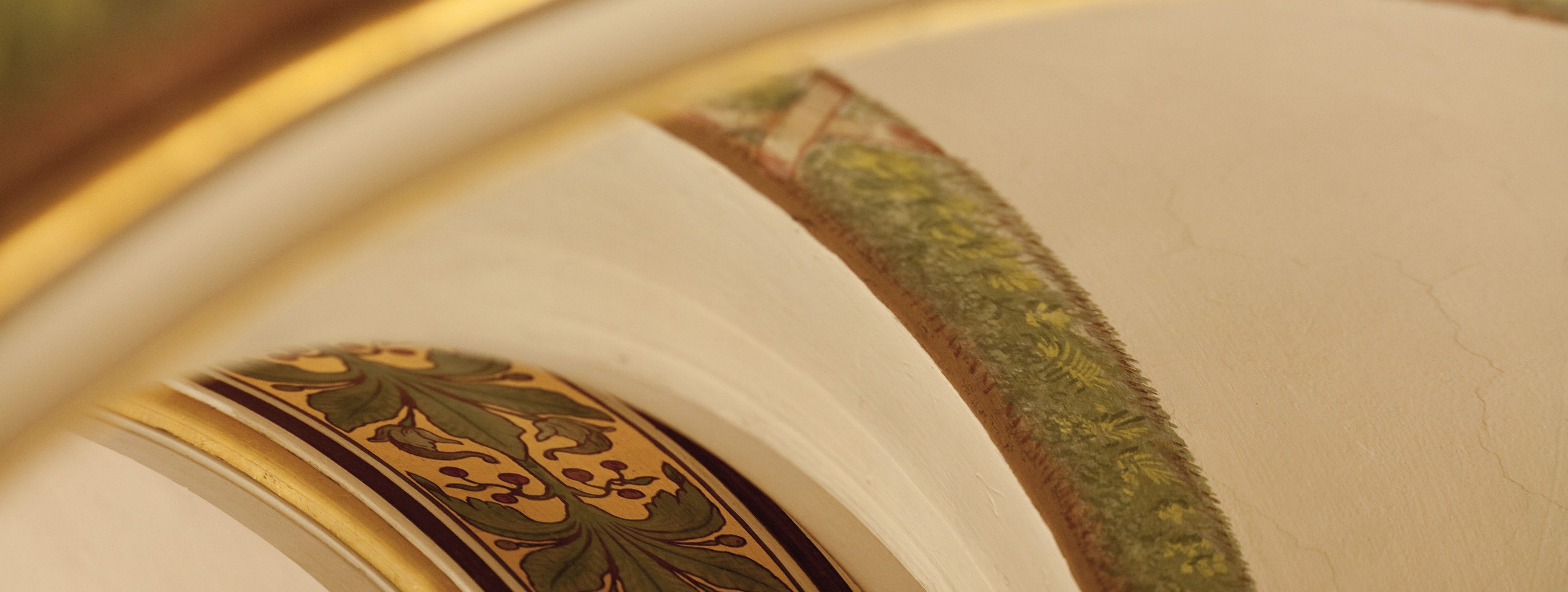
About the production
When young Werther sees how lovingly Charlotte, the daughter of an official, treats her little siblings, he falls madly in love with her.
Charlotte also develops feelings for him, but has to reject him. She has promised her dying mother that she will marry her fiancé Albert. Werther cannot accept his fate and confesses his love for Charlotte again after her marriage to Albert. The growing affection between the two culminates in a tragic end: Werther takes his own life and Charlotte can only confess her love in the face of the dying man.
Werther
Storyline
In the middle of summer, the widowed bailiff rehearses Christmas carols with his children, who are still minors.
Werther, who comes to visit, waxes lyrical about the wonderful natural surroundings. When he sees the great love that the children have for their sister Charlotte, the bailiff's only adult daughter, he is deeply impressed. Left alone with Charlotte, he confesses his love for her. But Charlotte evades him and reminds him of a vow she had made to her dying mother: to marry Albert, her fiancé. Then the news arrives that Albert has returned. Werther is left behind in despair.

A few months after Albert and Charlotte's wedding, the two rivals have a discussion. But Albert seems to forgive Werther for his earlier passion. As soon as Charlotte and Werther are alone, however, he reaffirms his love for her. Charlotte rejects him again and only allows him to see her again at Christmas time. Werther flees, leaving Sophie, Charlotte's 15-year-old sister, crying behind. She has fallen unhappily in love with him.
On Christmas Day, Charlotte, who is now also devoted to Werther, reads his letters. A suicide threat in the letter frightens her.

When Sophie arrives and talks about Werther, Charlotte bursts into tears. When she is alone again, Werther comes to her unexpectedly. He demands a kiss, but Charlotte refuses. Werther then leaves Charlotte and sends Albert a letter in which he asks for his pistol, which Albert sends him.
As one of the most important works in the French Romantic repertoire, Werther is also characterized by a pluralism of form that Carl Dahlhaus described as eclectic in the best sense of the word: "Eclecticism in Massenet's case does not mean a renunciation of originality [...] but rather the freedom to meet the changing challenges of the subject matter." Even though Massenet wanted to follow on from the triumph of his Manon with Werther, he refused to follow the dictates of the director of the Paris Opéra-Comique, who demanded that he copy the successful opera in terms of form and style. Instead, he sought new creative paths and forms of expression: On the one hand, Massenet explored the work of Richard Wagner and, on the other, experimented with orchestration. Among other things, he added the saxophone as a soloist to the instrumentation, thus achieving proto-impressionistic sound colors.
In his memoirs, Jules Massenet portrays the publisher and librettist Georges Hartmann as the driving force behind Werther . The two had attended the Parsifal performance in Bayreuth together in 1885, which was so important for Massenet, and had subsequently traveled to various German cities, including Wetzlar, the scene of the events that had inspired Goethe to write The Sorrows of Young Werther . There, Hartmann had also presented Massenet with a French translation of Goethe's epistolary novel. Hartmann went to great lengths for the project of Massenet's setting of the material, as the composer describes: "He spoke excellent German, he read Goethe in the original, he appreciated the German soul, and so he attached great importance to my finally tackling this work. When it was suggested to me one day that I write a lyrical opera to La vie de Bohème by Murger, he took the responsibility of rejecting this work without consulting me in the slightest."











